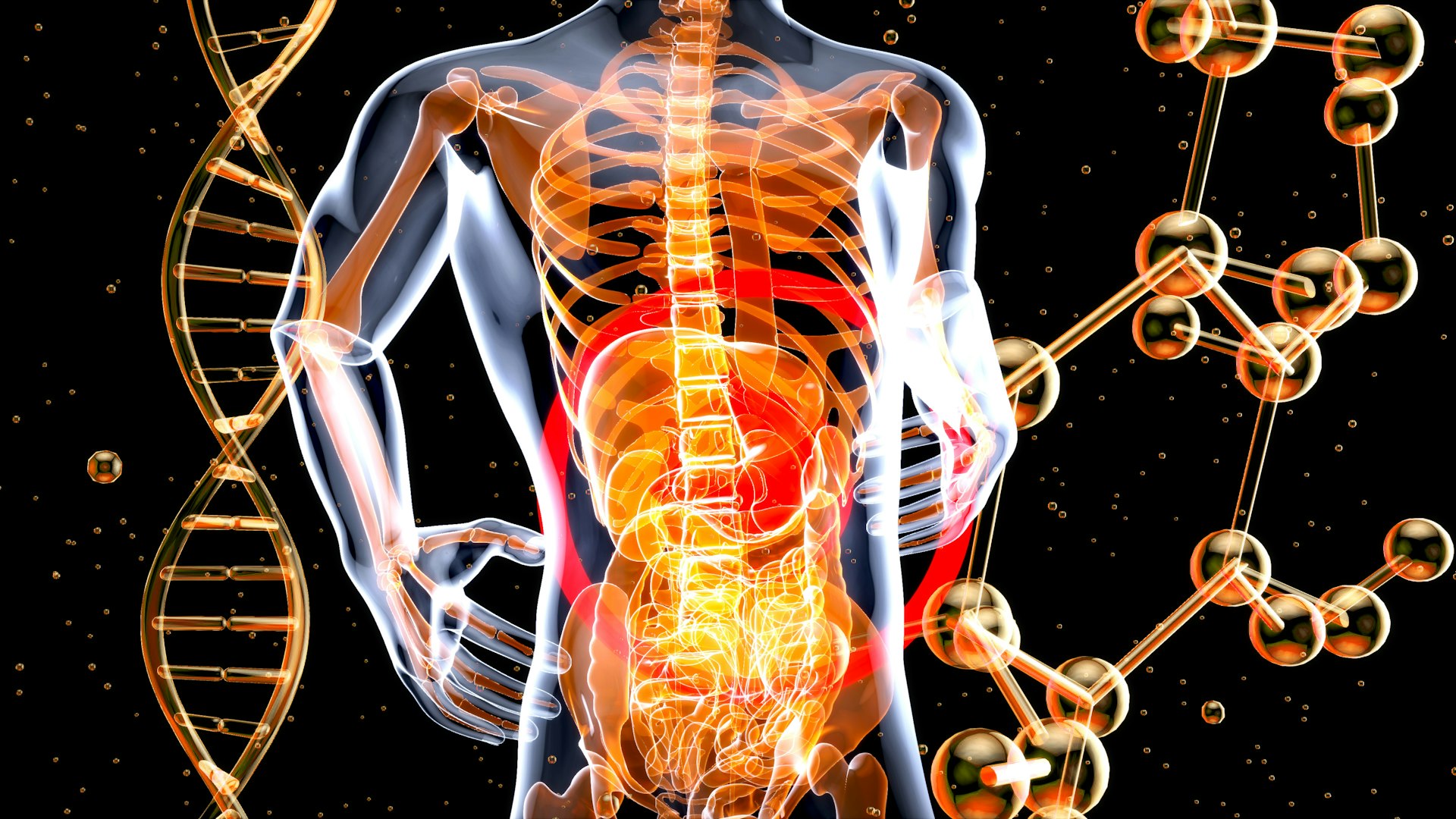Unlocking Wellness: How a Healthy Gut Microbiome Supports Your Whole Body

Photo by CDC on Unsplash
Introduction: Your Gut Microbiome-A Foundation for Health
Inside your digestive system lives a vibrant community of trillions of microorganisms known as the gut microbiome . This ecosystem, comprised mainly of bacteria but also viruses, fungi, and other microbes, is increasingly recognized as a key player in your overall wellness. Far beyond its traditional association with digestion, the gut microbiome impacts your immune system, metabolism, mental health, and even chronic disease risk. Understanding its importance-and how to nurture it-can transform your approach to daily health and long-term vitality [1] .
What Is the Gut Microbiome and Why Does It Matter?
The gut microbiome refers to the collective genome of all microorganisms inhabiting your digestive tract. These microbes break down food, synthesize vitamins, regulate immune responses, and help defend against harmful pathogens. In fact, some healthcare experts treat the microbiome almost like a separate organ due to its wide-ranging functions [4] .

Photo by Fiona on Unsplash
A balanced and diverse microbiome is crucial. When healthy bacteria thrive, they help keep harmful species in check, support nutrient absorption, and maintain the integrity of your gut barrier. Imbalances-sometimes caused by poor diet, stress, antibiotics, or illness-can disrupt this harmony, increasing susceptibility to inflammation and disease [2] .
The Gut-Body Connection: Key Benefits of a Healthy Microbiome
1. Digestive Efficiency and Nutrient Production
Gut microbes help break down complex carbohydrates and fibers that your body alone cannot digest. This process produces short-chain fatty acids (SCFAs), which are vital for gut lining health, inflammation control, and energy metabolism. Gut bacteria also synthesize essential vitamins, including many B vitamins and vitamin K, preventing deficiencies that can impact everything from energy levels to bone health [4] .
2. Immune System Regulation
Roughly 70% of your immune tissue resides in your gut. The microbiome teaches immune cells to distinguish between friend and foe, reducing the risk of allergies, infections, and autoimmune conditions. A thriving microbiome supports the development and function of immune cells, while disruptions may contribute to chronic inflammation and reduced immune defense [1] .
3. Metabolic Health and Weight Regulation
Research indicates that gut microbes influence how efficiently you extract energy from food, manage blood sugar, and store fat. Specific bacterial species are associated with lower risk of obesity and type 2 diabetes. For example, a more diverse microbiome may help stabilize blood sugar levels, while imbalances can precede the onset of diabetes in high-risk individuals [3] .
4. Heart Health
Certain bacteria can affect cholesterol metabolism and the production of compounds like trimethylamine N-oxide (TMAO), which is linked to heart disease. A healthy microbiome may help maintain optimal cholesterol levels and reduce cardiovascular risk, while disruptions can contribute to artery blockage and increased heart disease risk [3] .
5. Mental Health and Cognitive Function
The “gut-brain axis” describes a two-way communication channel between your gut and your brain. Studies have shown that gut bacteria can influence neurotransmitter production, impact stress responses, and affect mood and cognition. A balanced microbiome is associated with reduced anxiety, improved mood, and better cognitive performance [5] .
Real-World Examples and Case Studies
Consider a person with recurring digestive discomfort and low energy. After adopting a diet rich in plant-based fibers, fermented foods, and reducing processed foods, they report improved digestion, steadier energy, and fewer days sick per year. Scientific research supports these experiences, showing that dietary changes can quickly alter the microbiome composition, leading to measurable improvements in gut and overall health [2] .
In another example, athletes looking to enhance recovery and performance have found that optimizing gut health-through probiotic supplementation and dietary adjustments-leads to better nutrient absorption, reduced inflammation, and quicker recovery times. This underscores the microbiome’s far-reaching impact beyond digestion [5] .
Actionable Steps to Support Your Gut Microbiome
Improving gut health is achievable through daily habits. Here’s how you can get started:
- Prioritize Plant-Based Foods: Incorporate a variety of fruits, vegetables, legumes, whole grains, nuts, and seeds. These foods are rich in prebiotic fibers that feed beneficial bacteria [1] .
- Include Fermented Foods: Yogurt, kefir, sauerkraut, kimchi, and miso naturally contain live probiotics that can enrich your gut microbiome.
- Limit Processed Foods and Added Sugars: Highly processed foods and excess sugar can fuel harmful bacteria and reduce diversity.
- Use Antibiotics Judiciously: Only take antibiotics when prescribed, as they can disrupt the balance of gut bacteria. If you need antibiotics, discuss probiotic strategies with your healthcare provider.
- Stay Active: Regular physical activity has been linked to greater microbial diversity.
- Manage Stress: Chronic stress can negatively impact the gut-brain axis and your microbiome.
- Consult Professionals: For persistent digestive issues, consider seeking advice from a gastroenterologist or registered dietitian experienced in gut health.
To find a qualified professional, you can search for “registered dietitian specializing in gut health” through your local hospital network website, or visit the Academy of Nutrition and Dietetics’ official site and use their “Find a Nutrition Expert” tool.
Potential Challenges and Solutions
Challenge: Dietary Changes Can Be Difficult
Solution: Start by slowly introducing one new plant-based food each week. Track your body’s response and adjust as needed. Consider meal prepping to make healthy choices more convenient.
Challenge: Digestive Discomfort with Increased Fiber
Solution: Increase fiber gradually and ensure adequate hydration. If symptoms persist, seek guidance from a healthcare provider.
Challenge: Conflicting Information about Probiotics
Solution: Look for probiotic products with clinically studied strains. Consult healthcare professionals for recommendations tailored to your needs, especially if you have underlying health conditions.
Alternative Approaches and Additional Strategies
In addition to diet and lifestyle, emerging research supports the use of targeted probiotics and prebiotic supplements for specific conditions-such as irritable bowel syndrome or after antibiotic use. However, supplement effectiveness can vary by individual, so personalized advice is recommended.
Mind-body techniques, such as mindfulness meditation and yoga, can also support gut health by reducing stress and its negative effects on the microbiome. Many community health centers and wellness programs offer classes or coaching in these techniques.
Key Takeaways and Next Steps
Your gut microbiome is a cornerstone of health, influencing digestion, immunity, mood, metabolism, and more. By adopting simple, evidence-based strategies-emphasizing plant-based foods, fermented products, and healthy lifestyle habits-you can nurture your microbiome for lasting wellness. For specialized support, consult your healthcare provider or a registered dietitian with experience in gut health.
References
- [1] UCHealth (2022). Improving gut health improves all aspects of your health.
- [2] Harvard T.H. Chan School of Public Health (2023). The Microbiome – The Nutrition Source.
- [3] Healthline (2023). How Does Your Gut Microbiome Impact Your Overall Health?
- [4] Cleveland Clinic (2023). What Is Your Gut Microbiome?
- [5] Mayo Clinic Healthcare (2024). Achieving peak performance by boosting your gut microbiome.
MORE FROM getscholarships.net













